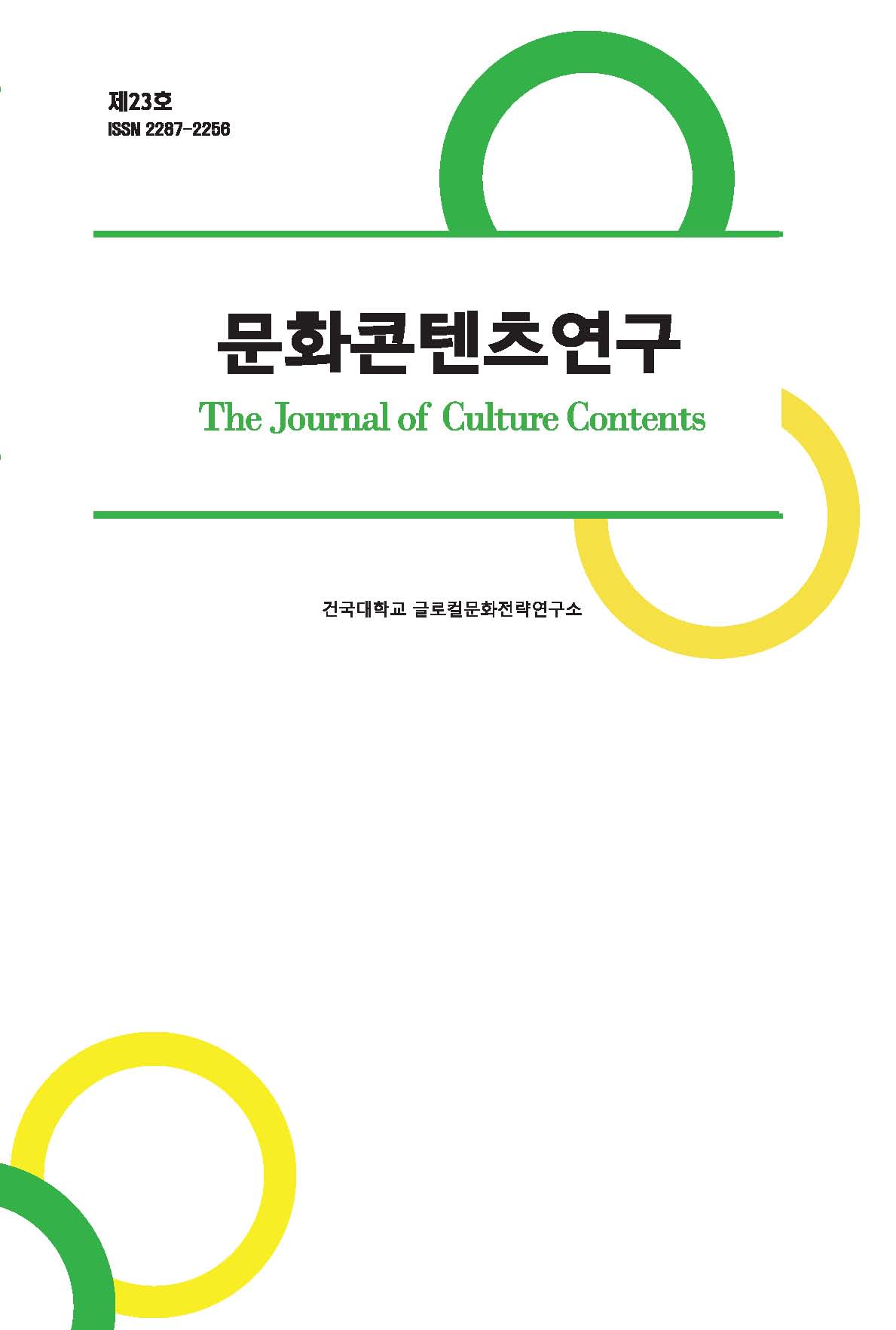Research Article
Abstract
References
Information
G.H. Mead identified games as an important factor in the formation of life's identity, and told that games are the process of understanding and performing their roles in all the people participating. The purpose of this paper is to explore whether online games can play a similar role to that of online games based on the game theory of Mead. As for whether online games can contribute to the formation of identity-as in Mead’s game theory- it can be approached by separatism and integration theory. Separatism is that online games and games in real life are separated from each other without any connection, and integration theory argues that online games can also project the attitude of the community to their own attitudes and form identity in their personal lives. In order to verify the effectiveness of online games from the perspective of the integration theory, this study was conducted by utilizing photo-voice among qualitative research methods. The process of how game users talk about games, taking and explaining related photos associated with games specifically shows how online games have affected the formation of identity. As a result of the discussion, we came to the conclusion that online games could be a process of accepting the attitude of the community to which we belong, and that the process of forming our identity through games could be developed.
미드(G.H. Mead)는 게임을 삶의 정체성 형성에 중요한 요소로 파악하였는데, 미드에게 게임은 참여하는 전체 사람들의 역할 모두를 이해하고 그 속에서 자신의 역할을 수행하는 과정이라고 했다. 미드의 게임이론에 근거하여 온라인 게임도 미드의 게임과 유사한 역할을 할 수 있는가를 탐구하는 것이 본 논문의 목적이다. 온라인 게임이 미드의 게임처럼 정체성 형성에 기여할 수 있는가에 대해서는 분리론과 통합론으로 접근할 수 있다. 분리론은 온라인 게임과 삶에서의 게임이 서로 연결점 없이 분리되어 있다는 것이고, 통합론은 온라인 게임에서도 공동체의 태도를 자신의 태도에 투영하며 개인 삶에서 정체성을 형성할 수 있다는 주장이다. 본 연구는 통합론의 관점에서 온라인 게임의 효과를 검증하기 위해 질적 연구방법 중 포토보이스를 활용하여 연구를 진행하였다. 게임 이용자가 게임에 대해 어떻게 이야기하는지, 게임이 연상하는 관련 사진을 직접 찍고 설명하는 과정은 온라인 게임이 정체성 형성에 어떤 영향을 주었는가를 구체적으로 보여준다. 논의의 결과 온라인 게임은 미드의 삶에서의 게임처럼 자신이 속한 공동체의 태도를 받아들이는 과정일 수 있으며 게임을 통해 정체성을 형성하는 과정이 전개될 수 있다는 결론에 도달하였다.
- 김근영, 「청소년기 자아정체성 연구의 대안적 접근: 서술적 정체성 발달」, 『청소년학연구』 제19권(제3호), 한국청소년학회, 2012.
- 김종길, 「사이버공간에서의 자아인식과 복합정체성 수행」, 『사회이론』 제33권, 한국사회이론학회, 2008.
- 김태연‧이순형, 「아동‧청소년의 온라인게임을 통한 성취, 자기효능감, 학교적응과 삶의 만족도」, 『한국게임학회 논문지』 제11권(제4호), 한국게임학회, 2011.
- 김희삼, 『4개국 대학생들의 가치관에 대한 조사』, 한국개발연구원‧광주과학기술원, 2017.
- 박경미‧김민아, 「중고령 여성장애인의 삶: 포토보이스 방법의 적용」, 『한국가족복지학』 제56호, 한국가족복지학, 2017.
- 양철진, 「온라인 게임에 나타난 청소년의 공동체 문화에 관한 연구」, 『청소년학연구』 제13권(제6호), 한국청소년학회, 2006.
- 이대영‧이승제‧정의준, 「도피이론을 통한 청소년 게임 과몰입 영향모델 분석」, 『한국게임학회 논문지』 제20권(제2호), 한국게임학회, 2020.
- 이승훈, 「도덕적 자아, 창조적 주체」, 『사회이론』 제46호, 한국사회이론학회, 2014.
- 전종수, 「한국의 인터넷 게임 셧다운제 정책의 효과성에 대한 연구」, 『한국게임학회 논문지』 제14권(제6호), 한국게임학회, 2014. 10.7583/JKGS.2014.14.6.99
- 정지나, 「포토보이스 조사방법을 활용한 대학생의 스트레스 대처전략 탐색적 연구」, 『디지털융복합연구』 제16권(제10호), 한국디지털정책학회, 2018.
- 주현식, 「청소년의 여가활동이 스트레스해소 및 학업 성취도에 미치는 영향에 관한 연구」, 『관광레저연구』 제13권(제1호), 한국관광레저학회, 2001.
- 헌법재판소, 「청소년보호법 제23조의3 등 위헌 확인 (2011헌마659·683(병합))」, 2014.
- Billieux, Joël, et al. "Functional impairment matters in the screening and diagnosis of gaming disorder: Commentary on: Scholars' open debate paper on the World Health Organization ICD-11 Gaming Disorder proposal (Aarseth et al.)",
Journal of Behavioral Addictions , 6(3), 2017. 10.1556/2006.6.2017.036 28816514 PMC5700712 - Erickson, E., Identity, youth and crisis", NewYork: Norton, 1968.
- Kafai, Yasmin B., Deborah A. Fields, and Melissa S. Cook. "Your second selves: Player-designed avatars", 5(1),
Games and culture , 2010. 10.1177/1555412009351260 - Lee, T. Y., & Lok, D. P. "Bonding as a positive youth development construct: A conceptual review",
The Scientific World Journal , 2012. 10.1100/2012/481471 22623898 PMC3353469 - Lloyd, B. & Duveen, G., "Gender identities and education: The impact of starting school",
The University of Chicago Press , 20(3), 1992. - Mead, George Herbert,
Mind, self and society , University of Chicago Press.: Chicago 111, 1934. - Reeves, Byron, and Clifford Nass,
The media equation: How people treat computers, television, and new media like real people , Cambridge, United Kingdom: Cambridge university press, 1996. - 「경쟁의 시대 넘어 '공감'의 시대로」, 『경향신문』, 2010년 10월 15일자.
- 「한국인이 좋아하는 40가지 [문화편] : 2004/2014/2019년 비교」, 『갤럽리포트』, 2019년 10월 17일자.
- Publisher :Research Institute of Creative Contents
- Publisher(Ko) :글로컬문화전략연구소
- Journal Title :The Journal of Culture Contents
- Journal Title(Ko) :문화콘텐츠연구
- Volume : 22
- Pages :161-187
- DOI :https://doi.org/10.34227/tjocc.2021..22.161



 The Journal of Culture Contents
The Journal of Culture Contents





